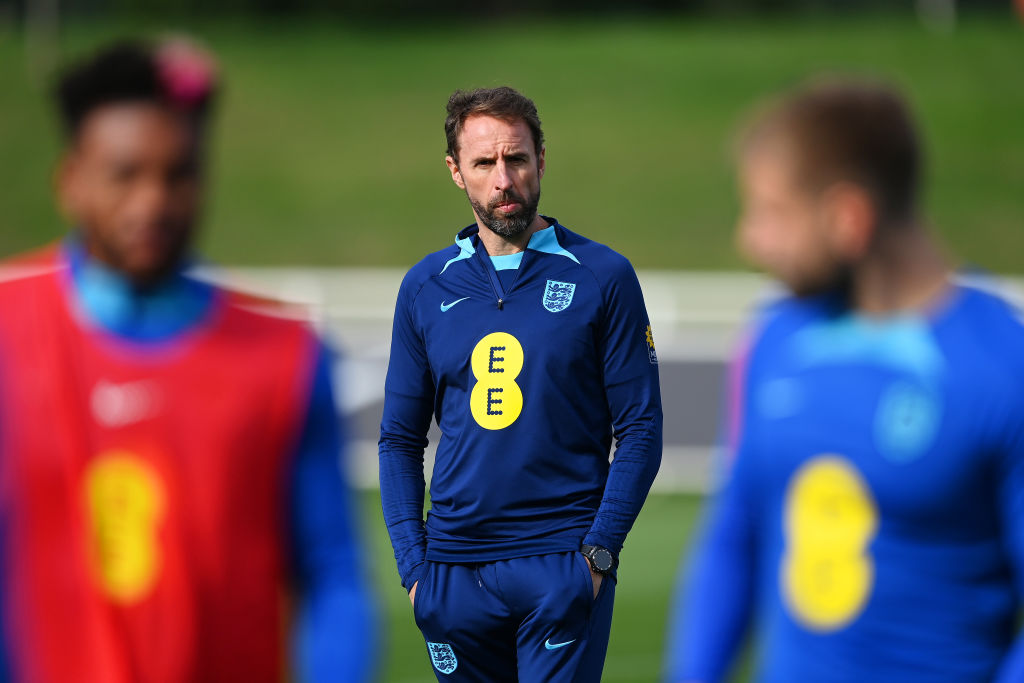Exclusive: Tougher Brexit transfer rules not helping English players in Premier League

Brexit has drastically shrunk the pool of footballers available to English clubs without having any clear benefit to the prospects of homegrown talent in the Premier League.
The findings are revealed in a major new study by football consultancy Analytics FC and law firm Fragomen shared with City A.M. and due to be published this week.
The research raises fresh questions about whether post-Brexit eligibility rules are aiding the England national team as intended at a time of renewed debate about their future.
Since January 2021, when English clubs were first required to obtain a points-based Governing Body Endorsement (GBE) from the Football Association for overseas signings, the number of players available has shrunk by around 90 per cent, the report estimates.
This has been mitigated slightly by a relaxation of the rules for under-21s but remains a fraction of the market at teams’ disposal when Britain was part of the European Union.
Premier League clubs’ have not lost any pulling power at the top end, as seen in the arrival of superstar striker Erling Haaland to Manchester City earlier this year.
But the ability of the English top division to compete with European rivals for the best young foreign talent does appear to have been dented.
The number of leading non-British 18-year-olds signing for Premier League teams has dropped since Brexit, halving from 2020-21 to 2021-22.
“There has been a real change in the way that English clubs have gone about their business in the recruitment of 18-year old-players,” says the Brexitball report.
“Though there are Fifa regulations in place to prohibit the transfers of Under-18s, the post-Brexit market has seen a move away from the domination that English clubs had shown in 2020/21.”
Greater restrictions on the signing of foreign players does not yet appear to have led to greater importance being placed on domestic talent, however.
Although spending by Premier League clubs on homegrown players has continued to grow steadily post-Brexit, it is still outstripped by sums going on non-UK signings.
In summer 2022, top-flight teams spent £1.2bn on foreign footballers and just over £700m on domestic talent.
And while the number of British players making an appearance for Premier League clubs has increased, from 272 in 2019-20 to 322 last season, the number of minutes accrued by them has fallen over the same period, from 315,000 to 296,000.
The report says: “The data so far suggests there has not been an enormous impact on opportunities for English and Scottish players in terms of the number of minutes that they are playing.”
Post-Brexit rules have benefited domestic players more in the second tier, where appearances and minutes are both up, while the end of freedom of movement has reversed the exodus of young talent such as Jude Bellingham to other European leagues.
The findings, however, are likely to encourage Premier League clubs who are reported to be arguing for a loosening of red tape around non-British signings.
The Football Association, which is keen to preserve opportunities for English players, is expected to resist any change to GBE rules.
“Undoubtedly, the picture around Brexit and GBE will change constantly moving forwards,” the report concludes. “Political sentiment and governments are always shifting. Opportunity for well thought out lobbying supported by objective data to change or adjust regulations will be important.”
Analytics FC co-founder and CEO Jeremy Steele said: “Until Analytics FC and Fragomen collaborated on this joint report, there had been no wide-ranging study of the effect of GBE, despite its enormous impact.
“We have been investigating the effects from day one and felt it was important to share that knowledge with stakeholders such as the Premier League, EFL, SFA, SPFL and PFA, as well as the wider public, so that the impact could be more widely understood.
“The detail and range of this report shows the enormous impact the regulations have already had, and we are looking forward to following up on this report once additional data are available.”
